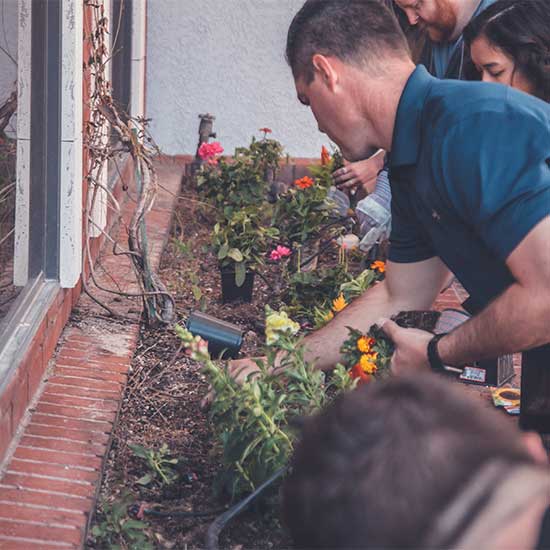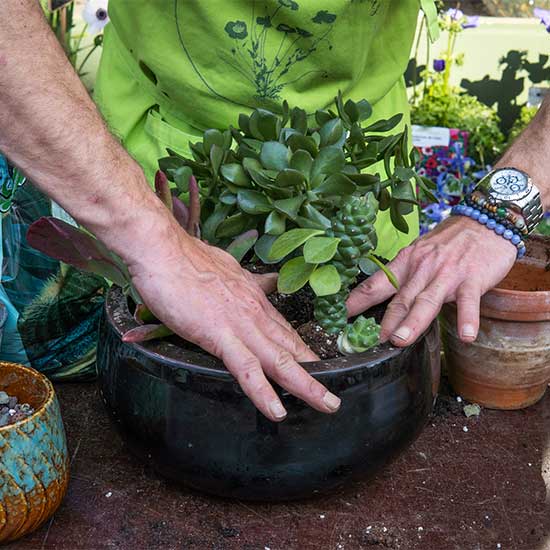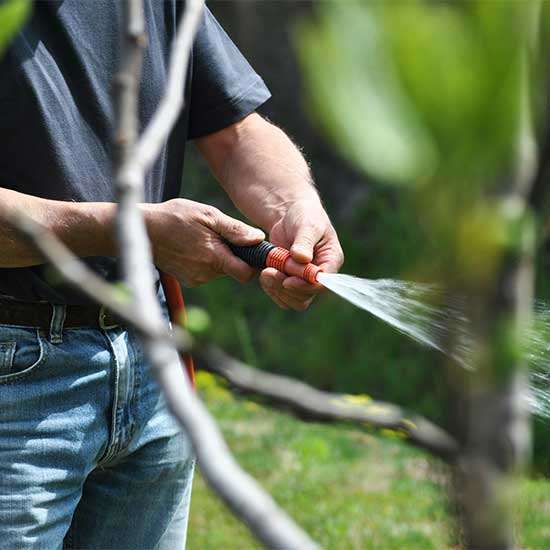Service

Garden Maintenance

Garden Maintenance: A Guide to a Thriving Garden
Maintaining a beautiful and healthy garden requires consistent care and attention. Here's a comprehensive guide to help you keep your garden thriving throughout the year:
Basic Maintenance Tasks:
- Watering: Proper watering is crucial for plant health. Water deeply and regularly, considering factors like climate, soil type, and plant variety. Aim to water early in the morning or evening to minimize evaporation.
- Weeding: Regularly remove weeds to prevent them from competing with your plants for resources like water, nutrients, and sunlight. Hand-pulling weeds is effective for small areas, while herbicides can be used for larger infestations.
- Fertilization: Apply fertilizer according to specific plant needs and soil conditions. Over-fertilization can harm plants, so it's best to err on the side of caution.
- Pruning: Pruning encourages healthy growth, shapes plants, and promotes flowering. Different plants have different pruning requirements, so research the specific needs of your plants before pruning.
- Deadheading: Remove spent flowers to encourage new blooms and prevent plants from going to seed.
- Composting: Composting kitchen scraps and yard waste creates a nutrient-rich amendment that improves soil quality and reduces waste.
Seasonal Maintenance:
- Spring:
- Clean up garden beds by removing dead leaves and debris.
- Plant seeds and seedlings for vegetables, flowers, and other plants.
- Divide perennials that have become overgrown.
- Summer:
- Water regularly, especially during hot and dry periods.
- Mulch around plants to help retain moisture and suppress weeds.
- Monitor for pests and diseases and take necessary action to control them.
- Fall:
- Harvest fruits and vegetables.
- Plant cool-season vegetables and flowers.
- Clean up garden beds and remove dead plant material.
- Apply winter protection for sensitive plants.
- Winter:
- Protect tender plants from frost and cold temperatures.
- Clean and store garden tools and equipment.
- Plan for the upcoming gardening season.
Additional Tips:
- Observe your garden regularly: Pay attention to changes in your plants' health and identify any problems early.
- Keep a garden journal: This helps you track plant growth, maintenance activities, and successes and failures.
- Use natural methods whenever possible: This includes organic fertilizers, pest control, and weed management.
- Seek help from professionals: If you're unsure about any aspect of garden maintenance, consult a local gardening expert or extension service.
Resources:
- Books:
- "The Complete Gardener's Guide" by Monty Don
- "The Vegetable Gardener's Bible" by Ed Smith
- "Four-Season Harvest" by Eliot Coleman
By following these tips and engaging in regular maintenance, you can ensure your garden flourishes throughout the year, providing you with fresh produce, vibrant flowers, and a beautiful outdoor space to enjoy.
Related Services

Landscaping
Landscaping is the art and science of designing and modifying the visible features of an area of land. It includes everything from planting trees and shrubs to installing patios and walkways.
Read More
Pruning plants
Pruning is a vital practice in garden maintenance, shaping plants, encouraging growth, and enhancing their appearance. By strategically removing parts of a plant, you can promote better air circulation, prevent disease, and stimulate new growth.
Read More
Irrigation & Drainage
Both irrigation and drainage play crucial roles in maintaining a healthy and productive garden. While irrigation provides water to plants, drainage ensures excess water doesn't harm them.
Read More